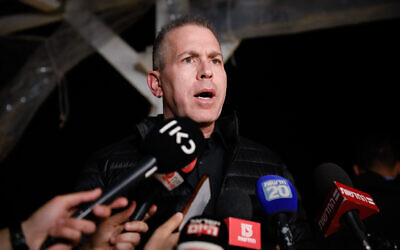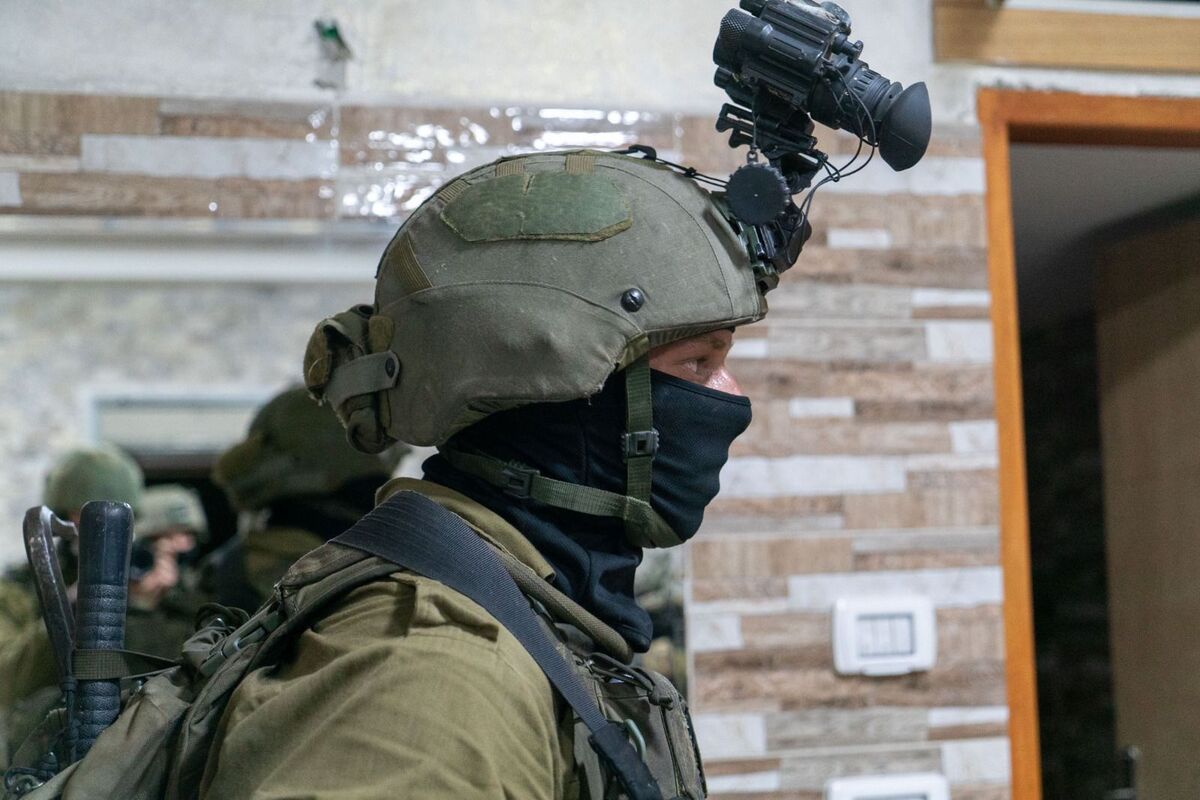DUBAI, United Arab Emirates — An Israeli-owned cargo ship that suffered a mysterious explosion in the Gulf of Oman came to Dubai’s port for repairs Sunday, days after the blast that revived security concerns in Mideast waterways amid heightened tensions with Iran.
Associated Press journalists saw the hulking Israeli-owned MV Helios Ray sitting at dry dock facilities at Dubai’s Port Rashid. Although the crew was unharmed in the blast, the vessel sustained two holes on its port side and two on its starboard side just above the waterline, according to American defense officials.
An Israeli security delegation is reportedly in Dubai to inspect the vessel.
It remains unclear what caused the blast, but the incident comes amid sharply rising tension between the US and Iran over its unraveling 2015 nuclear deal. Iran has sought to pressure US President Joe Biden’s administration to grant the sanctions relief it received under the accord with world powers that former president Donald Trump abandoned.
Israel’s Channel 13 News reported Saturday that security officials believe the ship was attacked by Iran’s Revolutionary Guard Corps, who fired two missiles at the ship.

The Israeli-owned cargo ship, Helios Ray, sits docked in port after arriving earlier in Dubai, United Arab Emirates, Feb. 28, 2021 (AP Photo/Kamran Jebreili)
From a distance, Associated Press journalists could not immediately see any damage on the port or starboard sides of the ship, although the dock blocked the view down to the waterline. The ship was anchored near Dubai’s storied floating hotel, the Queen Elizabeth 2. An Emirati coast guard vessel was seen sailing behind the ship, with Dubai police and Emirati armed forces vehicles parked nearby.
Emirati officials did not immediately acknowledge or respond to requests for comment on the vessel docking in the country.
The blast on the ship, a Bahamian-flagged but Israeli-owned roll-on, roll-off vehicle cargo vessel, recalled a string of attacks on foreign oil tankers in 2019 that the US Navy blamed on Iran. Tehran denied any role in the suspected assaults, which happened near the Strait of Hormuz, a key oil chokepoint.

Gilad Erdan gives a statement to the press in Jerusalem’s Old City following several terror attacks in and around Jerusalem, on February 6, 2020. (Olivier Fitoussi/Flash90)
Israeli ambassador to the US and UN, Gilad Erdan, told Army Radio on Sunday that “it was no secret that the Iranians are trying to harm Israeli targets” and alleged the explosion on the ship bore the hallmarks of other Iranian attacks.
Defense Minister Benny Gantz said Saturday that the proximity between the location of the incident and the Islamic Republic raised concerns that it was responsible for the attack, but added that a probe had not yet been completed.
“We need to continue investigating,” he stressed. “The Iranians are looking to harm Israelis and Israeli infrastructure. The proximity to Iran leads to the assessment that there is a likelihood that this is an Iranian initiative. We are committed to continuing to check.”
The Helios Ray had discharged cars at various ports in the Persian Gulf before making its way out of the Middle East toward Singapore. The blast hit as the ship was sailing from the Saudi port Dammam out of the Gulf of Oman, forcing it to turn to Dubai, in the United Arab Emirates, for inspection.
Iranian authorities have not publicly commented on the ship. The country’s hard-line Kayhan daily, whose editor-in-chief was appointed by Supreme Leader Ayatollah Ali Khamenei, alleged the Helios Ray was “possibly” on an “espionage” mission in the region, without offering any evidence to support the claim. The Sunday report speculated the ship may have been “trapped in an ambush by a branch of resistance axis,” referring to Iranian proxies in the region.

A billboard carries a portrait of Mohsen Fakhrizadeh, an Iranian scientist linked to the country’s nuclear program who was killed by unknown assailants last month, at the site of his killing in Absard east of the capital, Tehran, Iran, December 16, 2020. (AP Photo/Vahid Salemi)
Iran also has blamed Israel for a recent series of attacks, including a mysterious explosion last summer that destroyed an advanced centrifuge assembly plant at its Natanz nuclear facility and the killing of Mohsen Fakhrizadeh, a top Iranian scientist who founded the Islamic Republic’s military nuclear program.
Iran’s repeated vows to avenge Fakhrizadeh’s killing have raised alarms in Israel, particularly as the Gulf sees an increase in traffic from Israel as well as tourism following its normalization deals with the UAE and Bahrain.
Israel reportedly canceled its participation in this week’s Abu Dhabi arms fair because of fears that its delegates would be targeted for assassination by Iran. The Israeli delegation was to have included the heads of Israel’s major defense companies, seeking lucrative contracts and underlining the newly normalized relations between Israel and the United Arab Emirates.
Related posts:
Views: 0
 RSS Feed
RSS Feed

















 February 28th, 2021
February 28th, 2021  Awake Goy
Awake Goy 




 Posted in
Posted in  Tags:
Tags: 
















